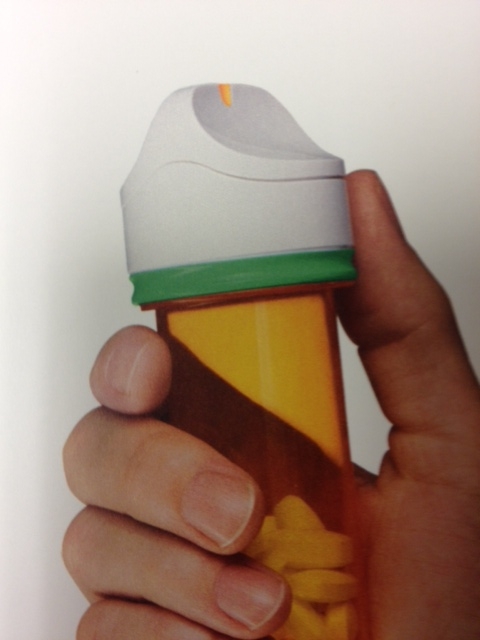December 25th, 2011 by DrWes in News, Opinion
No Comments »


 Just saw this advertised for patients taking Multaq (dronedarone): interactive pill bottle caps called “GlowCaps:”
Just saw this advertised for patients taking Multaq (dronedarone): interactive pill bottle caps called “GlowCaps:”
GlowCapsTM is a bottle with built-in wireless communication… When you receive your GlowCapTM, you program it with your schedule. It will then remind you when it’s time to take Multaq by lighting up, playing a melody, or calling your home phone. If you and your physician choose, your GlowCapTM can also send weekly reminder e-mail to you and a caregiver, send reports to your doctor, and refills can be initiated with the push of a button, if you provide a phone number when registering.
Okay. That’s pretty cool.
How It Works Read more »
*This blog post was originally published at Dr. Wes*
August 16th, 2011 by MellanieTrueHills in Health Tips, Research
No Comments »

As a patient, you probably see lots of hype-filled reports about various drugs. After a drug is approved, there’s an inevitable blitz of negative publicity which often scares people away from important new solutions that could help them.
There has been so much news lately about Multaq (dronedarone), the drug designed to provide the benefits of amiodarone but with fewer risks. This drug is important to people with afib, especially those with heart disease whose choices are limited, so it’s time to put into context for patients what has transpired in the two years since FDA approval.
These two companion articles provide an in-depth analysis into issues that have been reported about Multaq, including whether it can cause: Read more »
*This blog post was originally published at Atrial Fibrillation Blog*
March 31st, 2010 by DrWes in Better Health Network, Opinion, Primary Care Wednesdays, True Stories
No Comments »

It’s very generous of Sanolfi-Aventis’s marketing department to make this offer for me to serve as an “advisor” for dronedarone (Multaq), but seriously–I was a bit skeptical that they wanted my “feedback on the reasons for and against utlilization of Multaq® in the appropriate patient as well as to understand communication and educational needs with regard to Multaq® and the atrial fibrillation state in general.”
Where were they when the drug launched? Might it be because this drug hasn’t quite been the blockbuster they’d hoped for?
But, of course, I’d never be swayed to use more of this drug by such important consulting work. No, really.
P.S. Sanolfi-Aventis marketers: Please update your prescriber database with my correct workplace.
–Musings of a cardiologist and cardiac electrophysiologist.
*This blog post was originally published at Dr. Wes*
January 11th, 2010 by DrRich in Better Health Network, Health Policy, Opinion
No Comments »

As has been pointed out (pointedly) to DrRich, we do not have death panels in the United States. And indeed, considering that we’re not conducting military tribunals for Islamist terrorists who have tried (or succeeded in) killing and maiming as many of us as possible, it seems relatively unlikely that we’d assemble death panels (which sound even less due-process-friendly than military tribunals) for American patients.
What we will have, however, is a federally-mandated assembly, body, committee, commission, board, diet, parliament, or posse (but not a panel) of experts which will carefully evaluate all the objective clinical evidence regarding a particular medical treatment, and make “recommendations” to doctors about whether or when to use that treatment. The model which frequently has been offered up for our consideration, as we contemplate the workings of such a non-death-panel, is the British National Institute for Clinical Excellence, or NICE. Read more »
*This blog post was originally published at The Covert Rationing Blog*
 Just saw this advertised for patients taking Multaq (dronedarone): interactive pill bottle caps called “GlowCaps:”
Just saw this advertised for patients taking Multaq (dronedarone): interactive pill bottle caps called “GlowCaps:”












